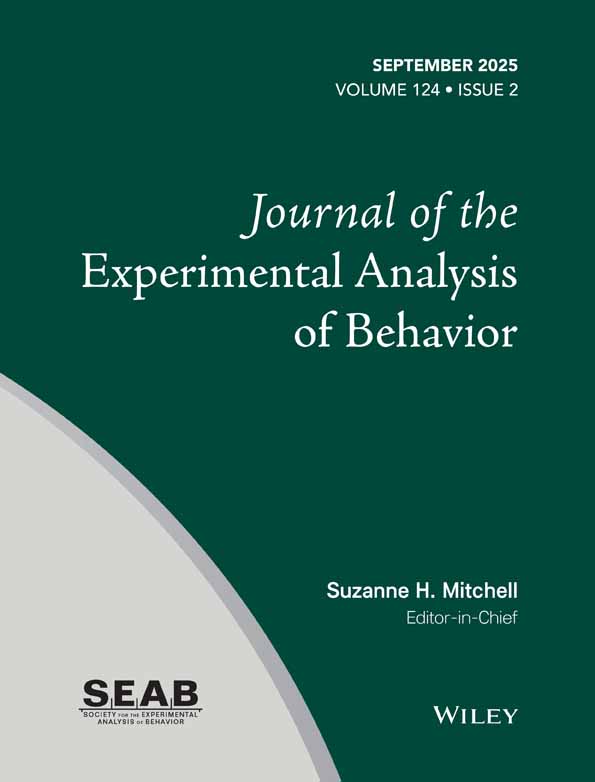FIXED-RATIO AND VARIABLE-RATIO SCHEDULES OF BRIEF STIMULI IN SECOND-ORDER SCHEDULES OF MATCHING TO SAMPLE1
This paper is based on a dissertation submitted to the Department of Psychology, University of Maryland, in partial fulfillment of the requirements for the Ph.D. degree. This research was funded by USPHS Grant No. MH-01604 from the National Institute of Mental Health. The author wishes to thank Dr. Lewis R. Gollub for his advice and guidance and Dr. John J. Boren for his continuous support throughout the course of this study. Thanks are also due to Ms. Wilhelmina Taylor for secretarial assistance.
Abstract
Eight pigeons matched to sample under second-order schedules of food reinforcement. Under fixed-interval unit schedules, the first correct match to occur after a given period of time was followed by the presentation of a brief stimulus. The termination of the last fixed-interval unit schedule was followed by food according to second-order fixed-ratio and variable-ratio schedules. In Experiment 1, as the number of fixed-interval unit schedules increased, long pauses occurred under the second-order fixed-ratio schedules, but not under the variable-ratio schedules. The similarity of performance measures such as local rate and accuracy indicated that the differences engendered by these two types of schedule are in the duration of the periods of not-responding. In Experiment 2, the addition of a brief stimulus at the end of each unit schedule in chained schedules that had different discriminative stimuli present for the duration of each unit did not substantially affect the performance, and long pauses continued to occur. However, few long pauses occurred under schedules with brief stimulus presentations alone. The most inaccurate performances were engendered by chained schedules without brief stimuli.




